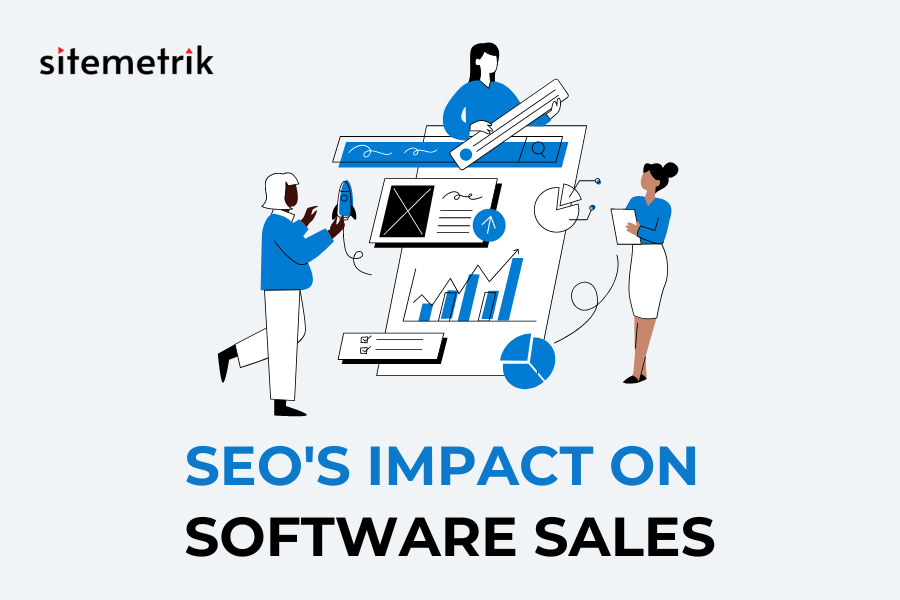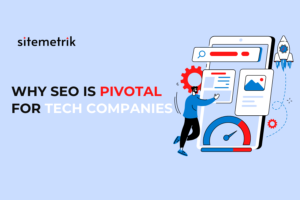Selling Software Solutions in a Digital World: SEO’s Impact on Software Sales
What is SEO?
Search Engine Optimization (SEO) is the practice of optimizing a website or webpage to increase its visibility and rank higher in search engine results pages (SERPs). It involves various strategies and techniques that aim to improve organic search traffic and drive more potential customers to a website.
By utilizing SEO strategies such as keyword research, content creation, link building, and website optimization, businesses can increase their online presence and attract more targeted traffic from search engines. SEO not only focuses on improving search engine rankings but also on enhancing the user experience, making websites more user-friendly and informative. Overall, SEO plays a crucial role in driving organic traffic, increasing visibility, and ultimately impacting software sales. Discover the SEO impact on software sales, from heightened visibility to amplified organic traffic, transforming digital strategies and fostering business growth.
How Does SEO Impact Software Sales?
SEO plays a vital role in impacting software sales by helping businesses gain recognition in search engines. When a software company’s website ranks higher on search engine results pages (SERPs), it attracts more potential customers and increases organic traffic.
Software companies can increase their exposure and reach a larger variety of their target clients by improving their website with relevant keywords, search engine optimization (SEO) tactics, and high-quality content. Higher visibility generates more leads, which in turn leads to higher sales.
Furthermore, SEO allows businesses to align their marketing strategies with changing customer behavior and the buying process. Customers now rely heavily on search engines to find and research software solutions. By appearing in relevant search results, software companies can establish themselves as trustworthy and credible options, thus influencing potential buyers’ decision-making process.

Benefits of SEO for Software Sales
In today’s digital landscape, search engine optimization (SEO) plays a crucial role in driving software sales. By implementing effective SEO strategies, software companies can experience numerous benefits that positively impact their sales.
- Increased visibility: By optimizing their website with relevant keywords, software companies can improve their rankings in search engine results pages (SERPs). This increased visibility allows them to reach a wider range of potential customers and generate more organic traffic to their site.
- Better targeted traffic: SEO enables software companies to attract highly relevant and targeted traffic to their website. By understanding the search intent of potential buyers and implementing relevant keywords, companies can attract potential customers who are actively searching for software solutions.
- Enhanced credibility and trust: Appearing in relevant search results not only increases visibility but also establishes software companies as credible and trustworthy options. When potential buyers see a company ranking highly in search results, they perceive it as a reputable choice, which can significantly influence their decision-making process.
- Improved conversion rates: SEO focuses on optimizing websites for user experience, making it easier for potential customers to find the information they need and navigate the site. This seamless user experience enhances conversion rates and increases the likelihood of turning leads into satisfied customers.
- Long-term results: SEO is a long-term strategy that can deliver sustainable results for software companies. While it may take time to see significant improvements, the efforts invested in SEO can pay off in the long run, generating consistent traffic and leads over time.
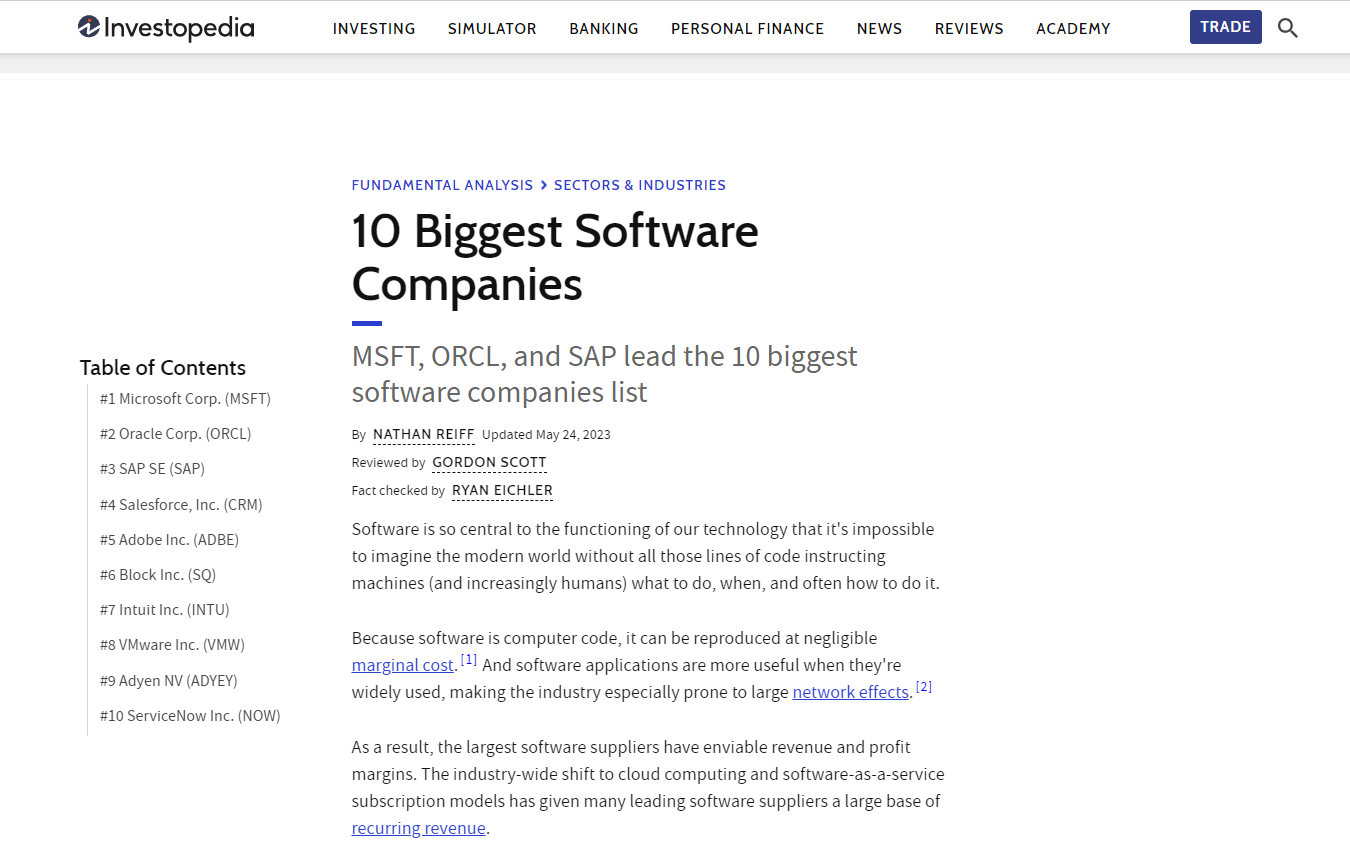
Increased Visibility and Brand Awareness
Software solutions can greatly benefit from increased visibility and brand awareness through the use of efficient SEO tactics. Software companies can expand their customer base and increase organic traffic by optimizing their websites with relevant keywords and achieving higher positions in search engine results pages (SERPs). Their enhanced visibility facilitates the establishment of a robust online presence and attracts the interest of their intended audience.
Optimizing the website content with relevant keywords is crucial in attracting potential customers who are actively searching for software solutions. By understanding the search intent of their target customers and incorporating those keywords strategically, software companies can ensure that their website appears in the search results when potential customers are looking for their products or services.
More Targeted Traffic
SEO plays a crucial role in driving more targeted traffic to software solutions by implementing various strategies such as keyword research, content optimization, and link building.
- First and foremost, keyword research helps software companies understand the search behavior and intent of their target customers. By identifying relevant keywords and incorporating them strategically in their website content, software companies can ensure that their website appears in the search results when potential customers are actively looking for their specific products or services.
- Moreover, content optimization plays a vital role in attracting potential buyers who are actively searching for software solutions. By creating high-quality and relevant content that addresses the pain points and challenges of their target audience, software companies can position themselves as industry thought leaders while providing valuable information to potential customers.
- Furthermore, link building is another important SEO strategy that helps increase the visibility and authority of software company websites. By acquiring inbound links from reputable and relevant websites, software companies can boost their organic search rankings and attract more targeted traffic to their website.
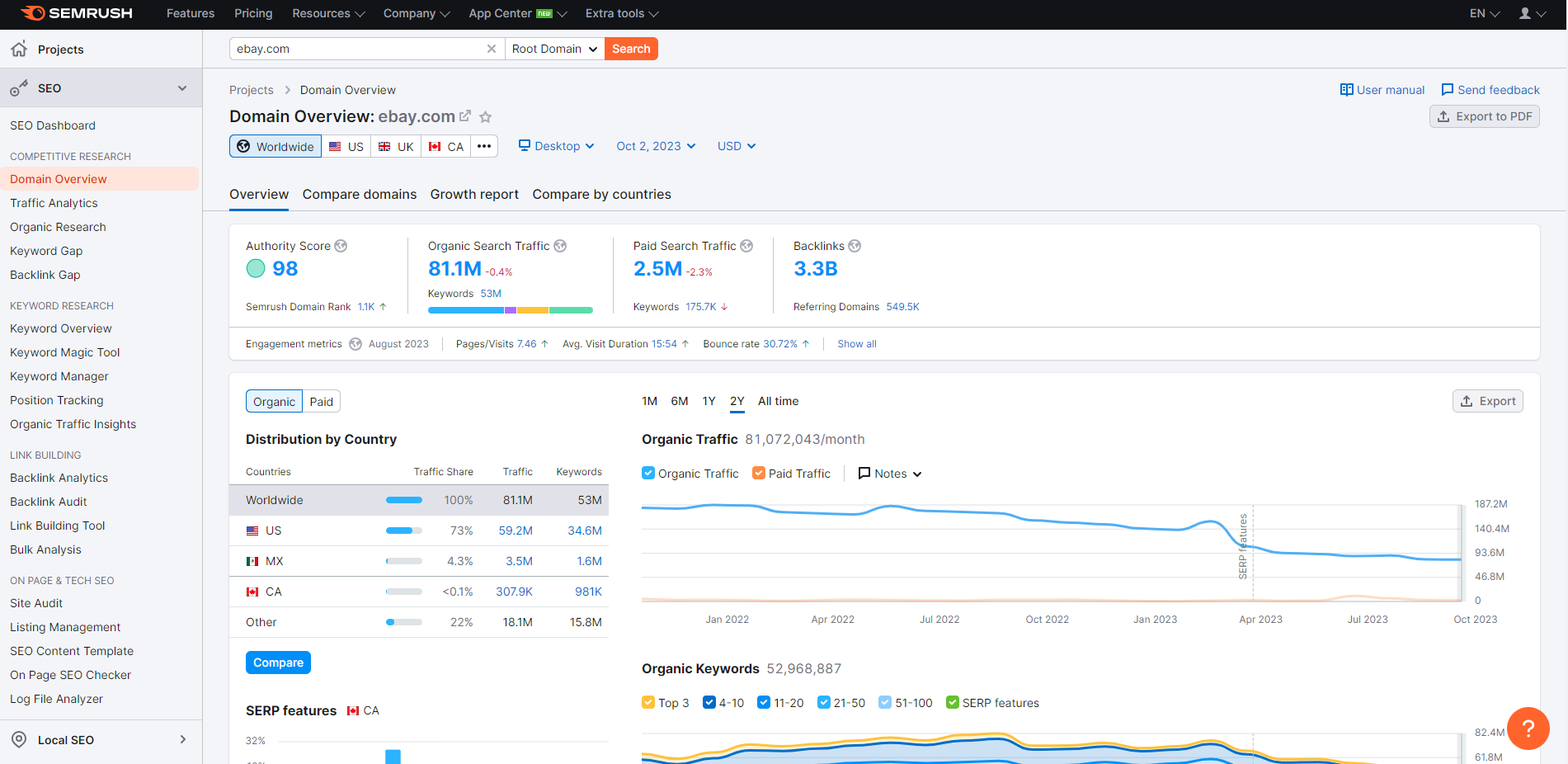
Longer Lasting Results
Putting into practice an SEO plan for software solutions can produce more enduring outcomes that enhance a business’s exposure, recognition, and targeted traffic. Even after making the initial investment in SEO efforts, software companies can continue to be visible in search engine results pages (SERPs) by enhancing the content of their websites with relevant keywords and raising their search ranks.
An important benefit of SEO is that it can raise brand awareness. Potential clients get acquainted with a software company’s brand and start to identify it with the particular software solutions they are looking for when the company’s website frequently ranks well in search engine results pages (SERPs) for pertinent search queries. Improved brand awareness and trust among target customers are directly correlated with this increased brand visibility.
Moreover, by driving targeted traffic to their website, software companies can attract potential buyers who are actively searching for software solutions. This targeted traffic is more likely to be interested in and engage with the content and offerings on the website, increasing the chances of converting them into paying customers.
Cost Effectiveness
Implementing an SEO strategy for selling software solutions offers several cost-effective benefits. Firstly, SEO reduces the new customer cost of acquisition by providing steady traffic to the website, thus decreasing reliance on paid advertising. Software companies can achieve a reduced cost per customer acquired through organic traffic by ranking higher in search engine results pages (SERPs) as opposed to traditional advertising strategies.
Moreover, SEO offers long-term cost savings. While there is an initial investment in keyword research, content optimization, and link building, the ongoing benefits outweigh the costs. Unlike paid advertising, which requires constant spending to maintain visibility, SEO efforts can provide sustainable organic traffic and visibility for an extended period.
Implementing an SEO Strategy for Your Software Solution
In today’s digital landscape, having a strong online presence is crucial for the success of any software company. One effective way to ensure visibility and drive organic traffic to your software solution is through search engine optimization (SEO).
Assessing Your Current Situation and Goals for Implementing an SEO Strategy for Software Solutions
Before implementing any SEO strategy for software solutions, it is crucial to assess the current situation and define clear goals. This will help determine the direction of the campaign and ensure its success.
To begin, it is important to understand the current SEO performance of the software solution’s website. This can be done by conducting a comprehensive SEO audit, which includes analyzing factors such as organic search traffic, keyword rankings, on-page optimization, and backlink profile. This assessment provides valuable insights into areas that need improvement and opportunities for growth.
Once the current situation has been assessed, it is time to set goals for the SEO strategy. These goals should follow the SMART criteria – specific, measurable, achievable, relevant, and time-based. For example, a goal could be to increase organic search traffic to the website by 20% within the next six months. This ensures that the goal is clear, can be measured using metrics, is realistic, aligns with the overall objectives, and has a specific timeframe.
Setting SMART goals is crucial for tracking the success of the SEO campaign. Website analytics tools like Google Analytics and Bing Webmaster Tools can provide valuable data on key metrics such as organic search traffic, conversion rates, and keyword rankings.
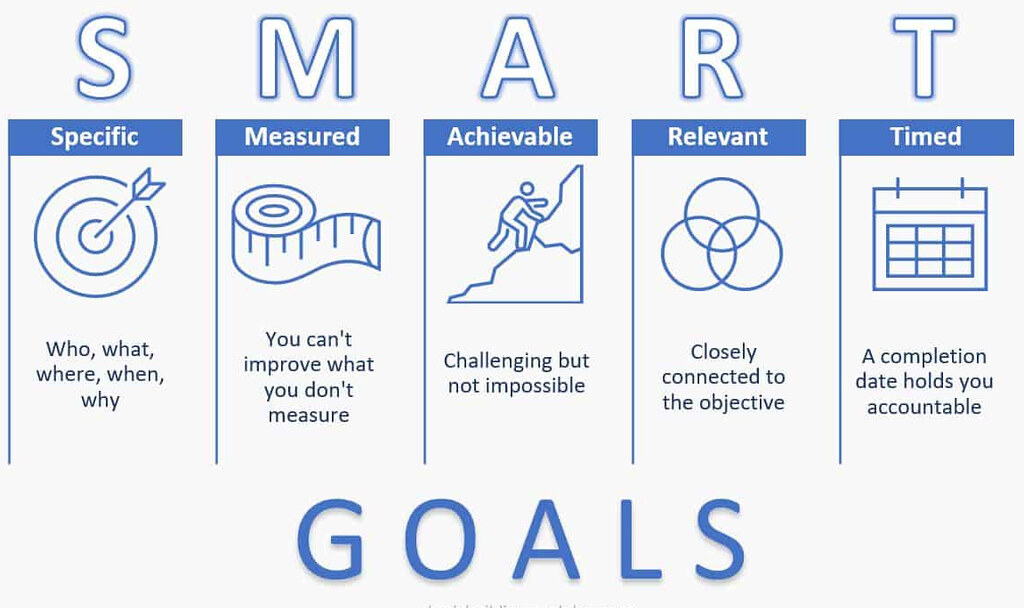
Researching Relevant Keywords and Search Volumes
When it comes to implementing an effective SEO strategy for software solutions, researching relevant keywords and understanding search volumes is crucial. This process allows you to target keywords that align with your software solution and ultimately drive organic traffic to your website.
To start, it’s important to consider search intent. Understanding what potential customers are looking for when they search for software solutions will help you identify the most relevant keywords. By aligning your content with their search intent, you increase the chances of attracting qualified leads.
Utilizing keyword research tools such as Google Keyword Planner and Ahrefs’ Keyword Explorer can provide valuable insights. These tools allow you to determine search volumes – the number of times a keyword is searched for in a given period. This information helps you prioritize keywords that have higher search volumes, indicating greater potential for traffic.
Another essential factor to consider during keyword research is keyword difficulty. This metric indicates how challenging it is to rank for a specific keyword. By evaluating keyword difficulty, you can focus on keywords that have a balance between search volumes and attainability.
Optimizing Content for Search Engines
Optimizing your content for search engines is crucial for driving organic traffic to your website and increasing software sales. To ensure your content is optimized, follow these steps:
- Relevance: Start by ensuring that your content covers relevant topics that potential customers are searching for. Conduct keyword research to identify the specific keywords people would use to find the information you’re offering. Incorporate these keywords naturally throughout your content to improve its visibility in search engine results.
- Uniqueness and Quality: Search engines value unique and high-quality content. Make sure your content is well-written, up to date, and provides valuable insights to your audience. Engage your readers by incorporating multimedia elements like images, videos, and infographics. This not only enhances the user experience but also increases the chances of your content being shared and linked to by others.
- Optimization of Key Elements: Pay attention to key elements that search engines use to understand and index your content. Optimize your title tags, meta descriptions, header tags, image alt text, and social media metadata. Use relevant keywords in these elements to improve your content’s visibility in search results.
Building Internal Links and Developing External Links
Building internal and external links are crucial elements of SEO that can greatly impact software sales.
Internal links help improve the overall structure and navigation within your website. By linking relevant pages and content together, you provide search engines with a clear understanding of the hierarchy and relationships between different pages. This helps search engines index and rank your content more effectively, ultimately increasing its visibility to potential customers. Internal links also keep users engaged, leading them to explore more of your website and potentially converting into paying customers.
On the other hand, external links from reputable websites act as a vote of confidence for your content. When other websites link to your software or mention your brand, search engines consider it as a positive signal of credibility and authority. Backlinks can significantly improve your search engine rankings and drive referral traffic to your website.
To acquire backlinks, consider strategies such as publishing original data or research that other websites may find valuable and link to. Writing press releases can also attract attention from journalists and bloggers who may include links to your software in their articles. Additionally, reach out to websites and blogs that have mentioned your brand or related topics and request them to link back to your website. Guest posting on relevant websites is another effective method to build backlinks and increase your software’s visibility.
Focusing on Different Types of Content
When it comes to an effective SEO strategy for software solutions, a well-planned content strategy plays a vital role. Utilizing various types of content can help boost your software sales and improve your search engine rankings.
Firstly, it’s important to ensure content consistency throughout your website. Avoid duplication or keyword cannibalization, which can confuse search engines and harm your rankings. Each piece of content should have a unique purpose and target specific keywords or topics.
Content pages, such as pillar content and blog articles, are key in attracting traffic and building high-quality backlinks. Pillar content consists of comprehensive guides or in-depth articles that cover a specific topic related to your software. These pages act as a cornerstone for your website and establish your authority in the industry.
Blog articles, on the other hand, provide an opportunity to regularly publish fresh and engaging content. They can cover a wide range of topics, from software tutorials to industry insights. By consistently producing high-quality blog articles, you can attract organic traffic and encourage repeat visits.
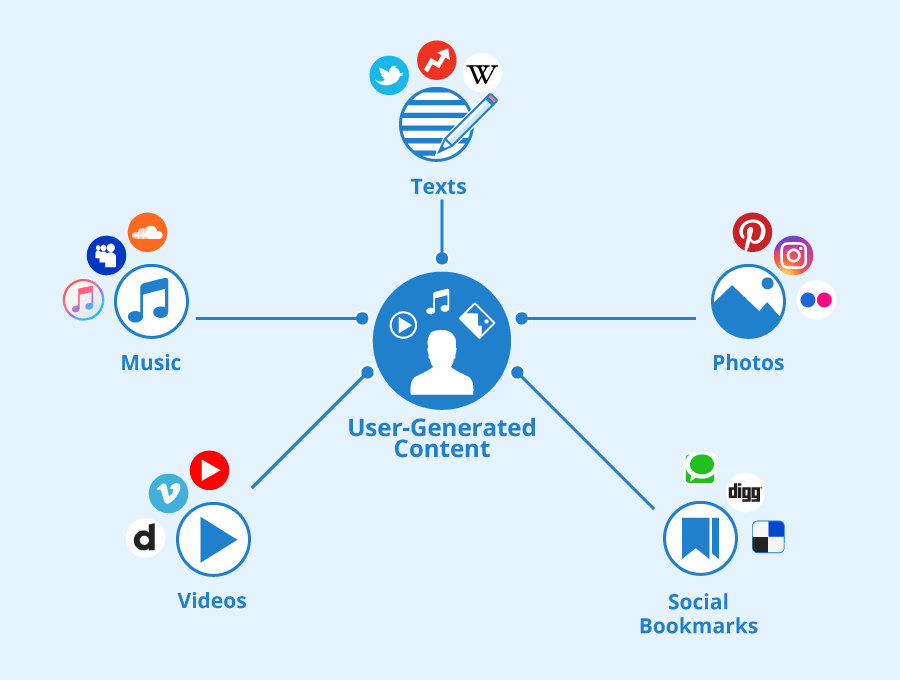
Utilizing the Right Tools and Technologies
Implementing a successful SEO strategy for software solutions requires the use of various tools and technologies. These tools provide valuable insights and capabilities that can significantly impact your software sales. Here are some key tools that can help boost your SEO efforts:
- SEMRush: SEMRush is a comprehensive SEO tool that offers features like keyword research, competitive analysis, and content optimization. It provides insights into search volumes, competition, and potential keywords to target for organic search traffic. With its vast database and analytical capabilities,
- Ahrefs: Backlink analysis is crucial for improving search engine rankings and driving referral traffic. Ahrefs is a powerful tool that allows you to analyze your website’s backlink profile and identify opportunities for link building. It provides valuable data on domain authority, referring domains, and anchor texts, enabling software companies to develop effective link building strategies.
- Check My Links: Broken links negatively impact user experience and can harm your search engine rankings. Check My Links is a handy tool that helps you identify and fix broken links on your website. By ensuring all your links are functional, you can enhance your website’s usability and SEO performance.
- Website Grader by Hubspot: Analyzing the performance of your website is crucial for SEO success. Website Grader by Hubspot is a free tool that evaluates different aspects of your site, including page load speed, mobile friendliness, and security. You can improve the functionality and user experience of your website by pinpointing areas that need work.
- Moz Pro: Moz Pro is a comprehensive SEO tool that offers a range of functionalities, including keyword research, site audits, rank tracking, and backlink analysis. It provides software companies with all the necessary capabilities to improve their search engine rankings and drive organic traffic.
Measuring Success with SEO for Software Solutions
Measuring the success of implementing SEO for software solutions is crucial to evaluate the effectiveness of your strategies and make data-driven decisions. There are three main metrics that can help you measure SEO results for software solutions: ranking, traffic, and conversions.
- Firstly, tracking the ranking of your software solution’s website on search engines is essential. Higher rankings for relevant keywords indicate that your SEO efforts are paying off. By consistently monitoring your website’s rankings, you can identify areas for improvement and make necessary adjustments to optimize your visibility.
- Secondly, analyzing website traffic is another vital metric. By examining organic search traffic and referral sources, you can gain insights into the effectiveness of your SEO strategies. If organic traffic increases over time, it demonstrates that your website is attracting more potential customers through optimized search engine visibility.
- Lastly, measuring conversions is crucial to determine the impact of SEO on software sales. Conversions can include sign-ups, downloads, or purchases, depending on your software solution’s goals. You can accurately gauge the effectiveness of your SEO efforts in producing qualified leads and customers by monitoring conversions and examining the origins of those conversions.
Exploring the Role of SEO Agencies in Digital Success
If you’re aiming to supercharge your software sales by enhancing search engine visibility, it might be the perfect moment to get in touch with our top-tier SEO agency for assistance. Crafting and executing a potent SEO strategy is of utmost importance for software solutions seeking to amplify their online presence and allure potential customers.
When you partner with our seasoned SEO agency, you unlock a multitude of advantages tailored to elevate your software business. We possess the expert knowledge in technical SEO, on-site SEO, and off-site SEO, ensuring that your website undergoes meticulous optimization for search engines and realizes its complete potential. Your journey to heightened online success commences with a connection to us.

Baris Coskun
Baris Coskun is 8 years experienced SEO Expert that specializes in content and technical SEO strategy creation/implementation progress for large-scale, multilingual, and international targeting websites.

